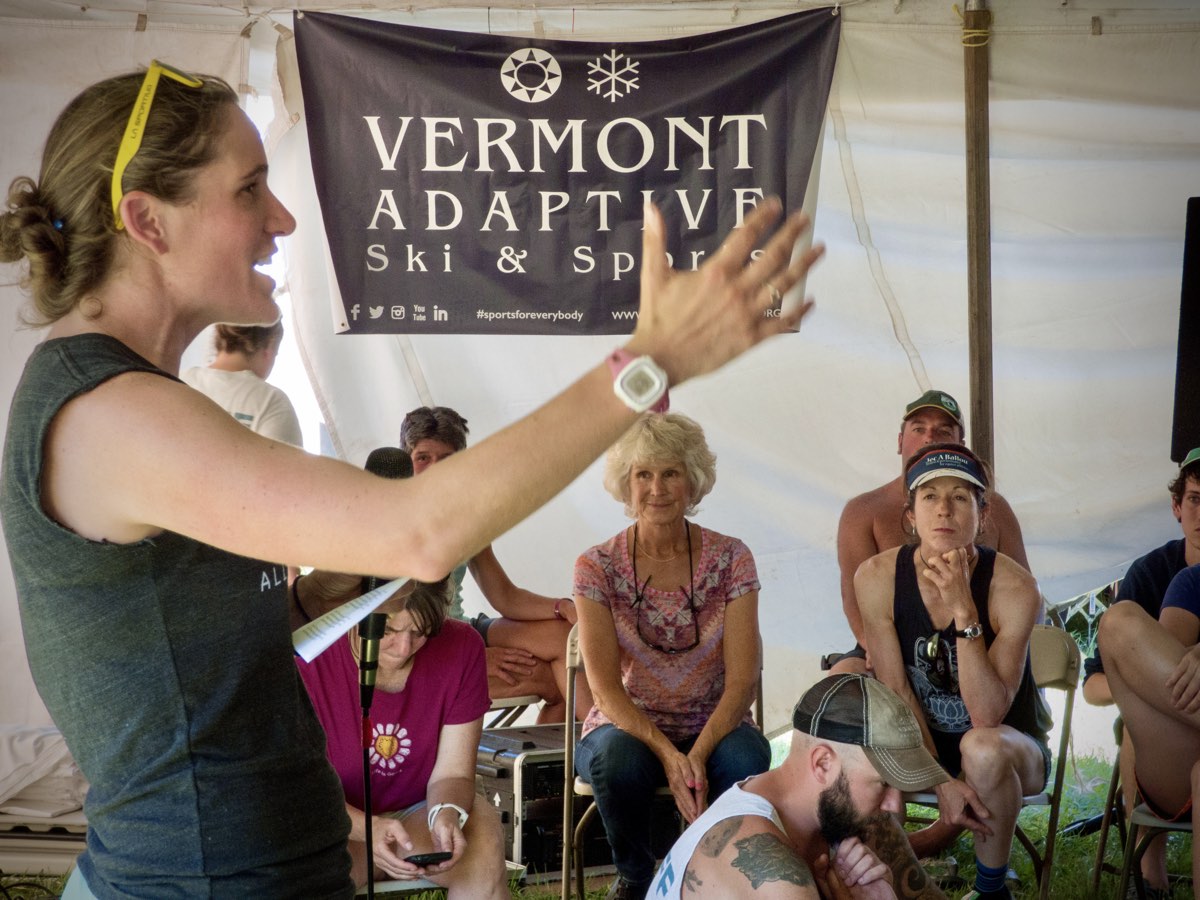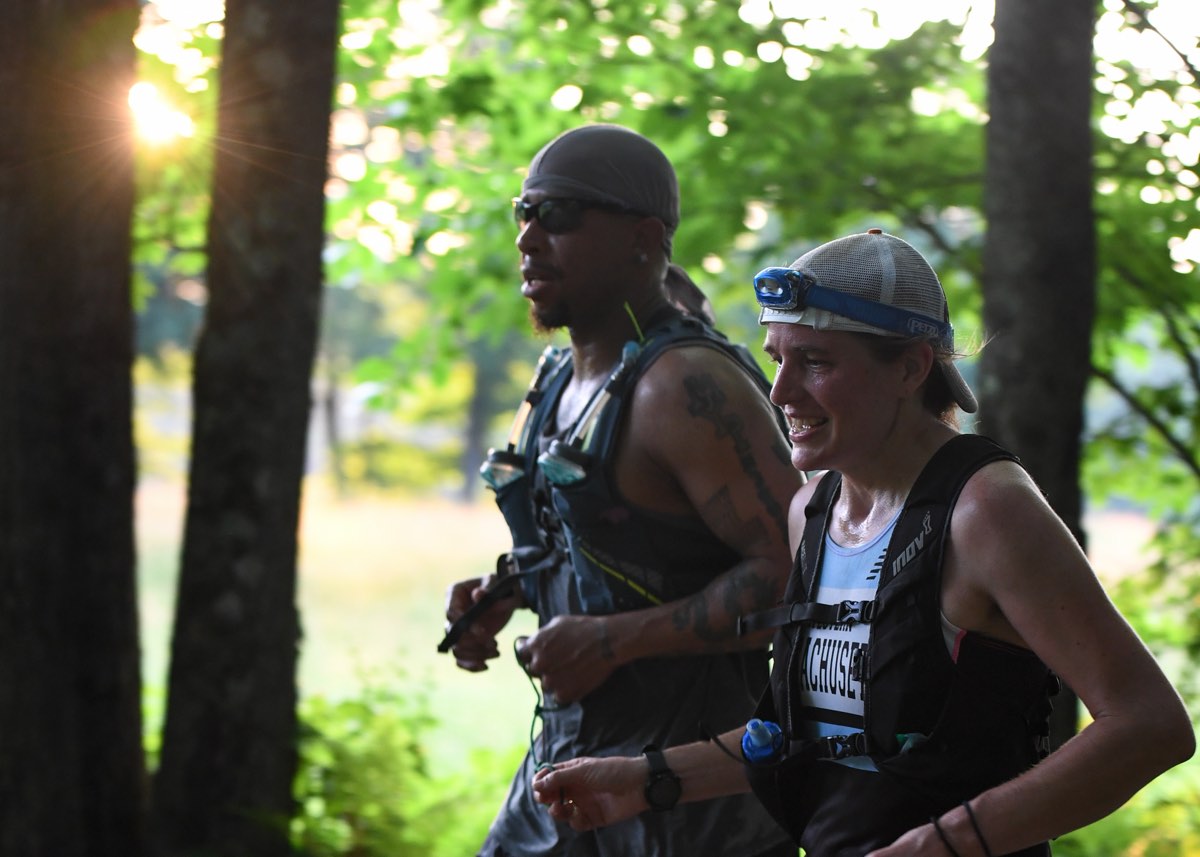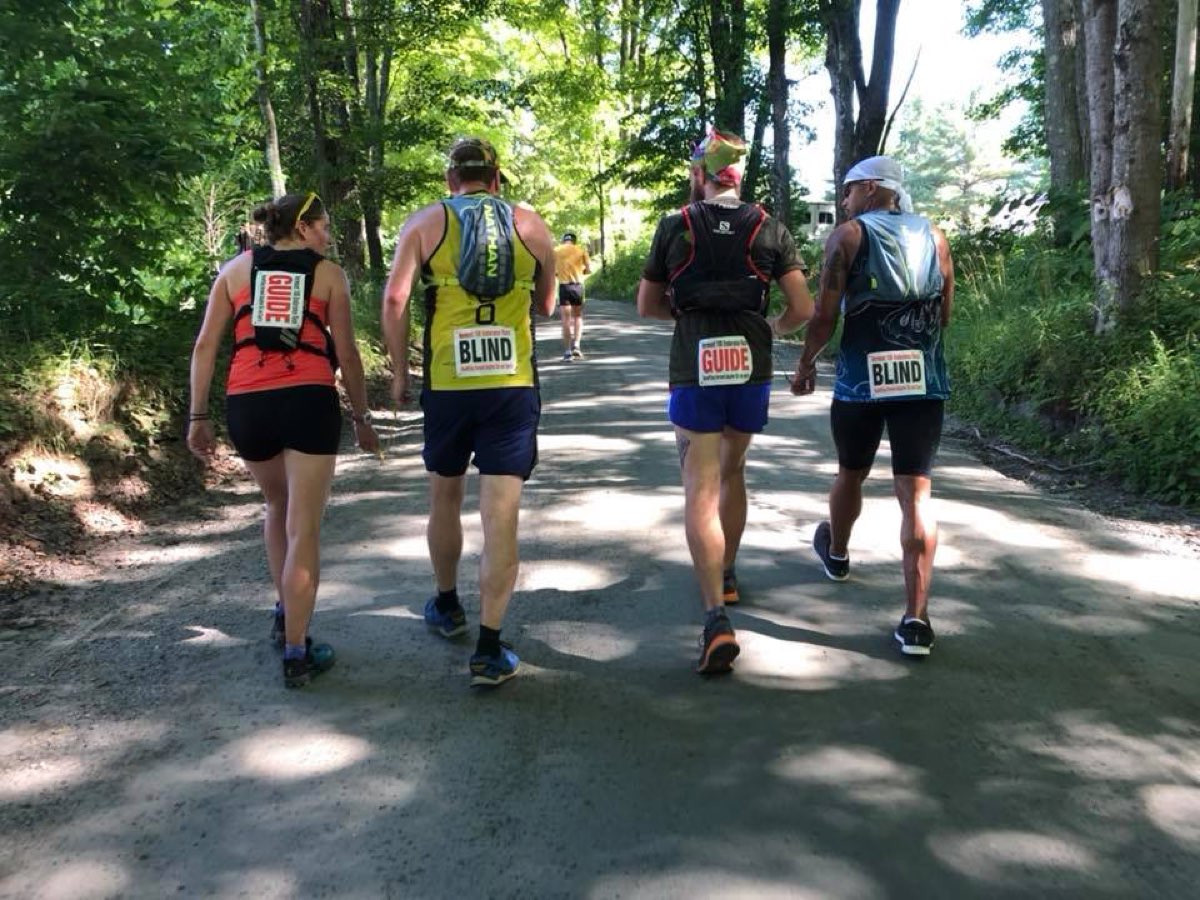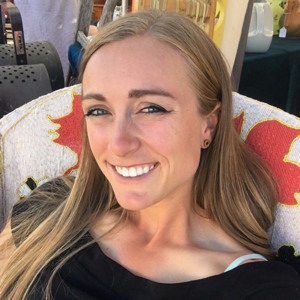[Editor’s Note: March is Women’s History Month! We’re highlighting stories of women moving the needle forward in trail running and ultrarunning. Our goal is to bring to light women who are progressing our sport in a variety of ways: in big business, in the community, and on the trail itself. Let’s celebrate!]
While women’s participation in the trail running and ultrarunning world has increased in the last decade, there is still a dearth of female race directors. Don’t get us wrong, they do exist! Women like Krissy Moehl and the Chuckanut 50k, Tia Bodington and the Miwok 100k, Keira Henninger and the Sean O’Brien 50/50 among her other events, and Candice Burt of the Moab 240 Mile and more events are a few of the women stepping up to bring great races to the trail running community at large.
Amy Rusiecki is another of these enterprising women who have taken race directing a step further — encouraging and advocating for adaptive athletes to not only join in, but to have their own division, and helped organize guides for both visually- and mobility-impaired runners at the Vermont 100 Mile.
The Guide: Amy Rusiecki
Amy Rusiecki’s path to trail running was quite predictable: she grew up playing in the woods. Growing up on the U.S. East Coast in places like upstate New York and western Massachusetts, the dense northeast woods were her adventure ground for everything, including cross-country skiing, orienteering, and mountain biking. At that time, running was almost an afterthought, something she did to stay in shape for the difficult Nordic ski races in college.
“After college, it was harder to find those skiing opportunities,” said Rusiecki. “After that, I went through 10 years of trying different endurance sports — road marathons, biking, triathlons, mountain biking, cyclocross — but I’d do one for a year or two and bounce to the next. Eventually, running had a bigger influence on my life.”
In the early 2000s, Rusiecki entered a few trail races. In 2007, she ran her first 50 miler at the Vermont 50 Mile, and by the second half of that decade, she was also racing plenty more ultramarathons.
Rusiecki’s first experience as a race director came by way of the Nordic ski community. After graduating from college, she helped run the New England league for Nordic ski races; the current director got busy, and soon she was putting on the races all on her own. She admits that directing ski races was much simpler than trail runs: the course was already there, and there were no aid stations or volunteers to manage.
A few years later, when Rusiecki was well-entrenched in the trail running world, her career as a race director came calling once again.
“In 2014, the long-time race director of the Vermont 100 Mile wanted to step away to focus on her family and farm. It was the year after Life Time Fitness took over the Leadville 100 Mile, and they really didn’t want a corporation to take over this race.
“I threw my name in the hat to be race director because I’d finished the race five times, understood the course, and even though I knew I wasn’t the perfect candidate, I felt like I could keep the passion and community feel of the race intact.”
So that year, Rusiecki not only shadowed race directing, but also ran the full race one more time to say goodbye to running her beloved event.
The Vermont 100 Mile has interesting beginnings: it started as a 100-mile horse race, founded by Steve Rojeck. When Rojeck met Laura Farrell, the founder of Vermont Adaptive Ski and Sports, he suggested she bring runners to join the horses along the tough New England trails, and so in 1989, runners and horses joined forces.
With Farrell then at the reins, the race served as a perfect fundraiser for her adaptive sports organization: while it didn’t start out having an adaptive category, it’s always been connected to the adaptive athletics community.
By the time Rusiecki took over the race, it was one of the premier 100-mile events in the U.S. Due to its connection with Vermont Adaptive Ski and Sports, there had been a few adaptive athletes in the past, but never with their own category. One visually impaired runner, Kyle Robidoux, brought it up to Rusiecki one year when she served as his guide for the first 15 miles of the race.
As Rusiecki and Robidoux navigated the technical trails through a combination of a wrist tether, a white bib with a black box (so those with a bit of sight can identify the direction of their guide), touch, and verbal commands, they talked about the lack of adaptive categories in the trail and ultra world.
“Kyle and a few others helped me do the research on other races. They have really robust adaptive athlete rules on who qualifies … that was the starting point to the first year of having an adaptive category in 2016,” remembered Rusiecki.
“This year, we’re set to have three visually and one mobility impaired runner. These athletes have always been there, but these categories need to be spelled out. Rather than being put in the position of having to ask permission, this category shows that they are welcome, with fair accommodations, and they don’t have an extra barrier to entry.”
As of 2022, Rusiecki is the race director of not only the Vermont 100 Mile, but also the Seven Sisters Trail Race, the Chesterfield Gorge Ultra, the Mount Toby Ultra, and the Mount Tom Trail Race. While not planning those races, she keeps busy as an engineer for the public works department in Amherst, Massachusetts, which keeps her close to Vermont and the surrounding trails. As far as the trail and ultra world garnering more female race directors, she wants to see the data.
“I’m an engineer, I like to see the numbers. There’s definitely more support and energy than in previous years, but I’m not sure if the numbers are rising. If I were to give advice to potential female race directors, I’d say just do it, get into the sport. I’m not sure I’ve ever encountered a community of female runners who haven’t been immediately inclusive of folks, welcoming them in.”
Call for Comments
- Who are some other female race directors out there? Give them a shout in the comments section below!
- Leave a comment to share an experience with running one of the races Amy Rusiecki directs.
- Calling all adaptive athletes! Leave a comment to let the community know how we can better support you as an athlete and person.



